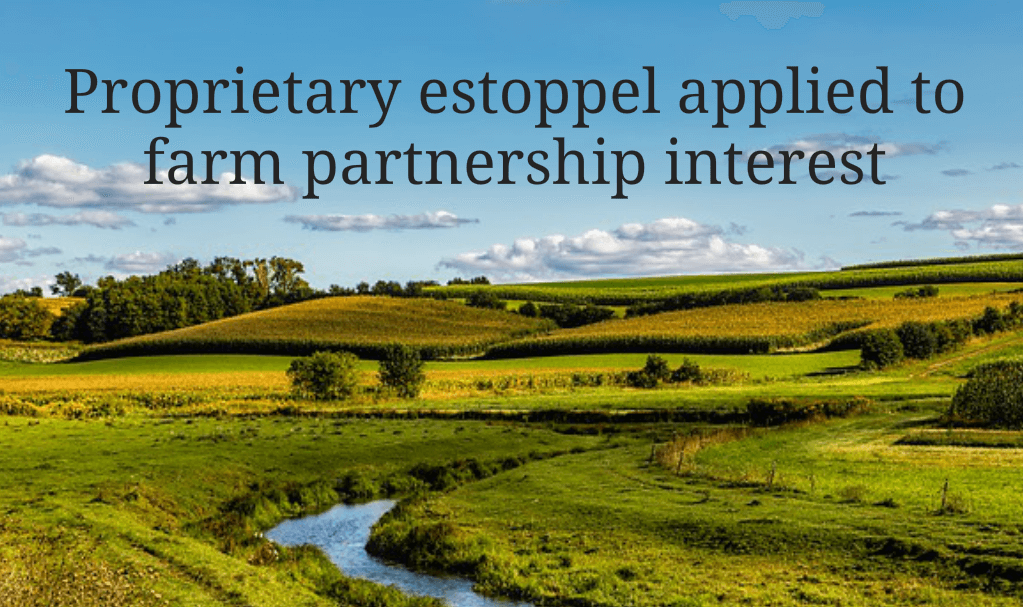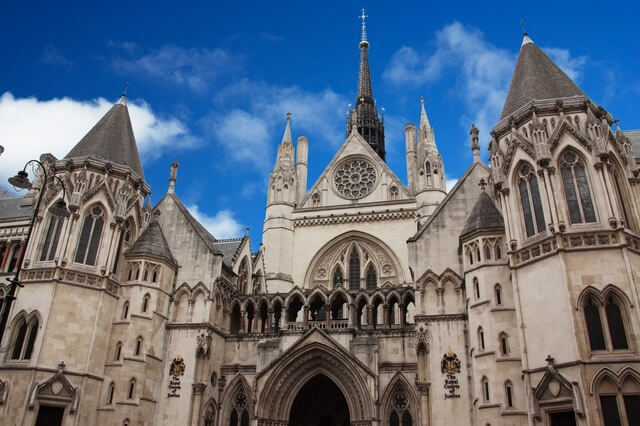Court-ordered transfer of farm partnership interest following repeated promises

“…the father and son fell out, and the father decided to disinherit his son…”
A share in a partnership is easy to transfer. It can be transferred by signature of a very short document. It can even be transferred by oral agreement. The assets so transferred can include land, without the usual complex formalities associated with such transfers.
As the case of Moore v Moore [2016] demonstrates, a partnership share can also be transferred or acquired in consequence of a promise, if the person to whom the promise has been made has acted to his detriment in reliance on the promise. This is known as proprietary estoppel.
In that case, the son (who was one of two children) of a farmer was repeatedly told over four decades that he would inherit his father’s share of a farming partnership business. During that period the son based his life on the farm, worked long hours and received only modest income. There was evidence to the effect that he could have earned considerably more elsewhere. This is not an unusual situation in many farming families.
When the promise was first made, the son was not a partner. He subsequently became a salaried partner, without any ownership interest in the partnership. It was only at the end of the third decade that he became an equity partner, replacing his uncle, who retired from the partnership, and thus became a co-owner with this father.
The farm, which was one of the partnership assets, was worth several million pounds.
Towards the end of the four decades, the father and son fell out, and the father decided to disinherit his son. He executed a will which gifted his share of the farm partnership to his son-in-law rather than to his son. He later served notice of dissolution of the partnership, intending to take his share of the proceeds following a sale of the farm. By the time of the trial the father was suffering from moderate to severe dementia, and his wife was appointed by the court to conduct the litigation for him.
The court found that the son should indeed become entitled to his father’s share of the partnership assets on his father’s death, thus overriding the intended gift by will to the son-in-law. The father’s repeated promises and the detriments suffered by his son had gone on for such a long time that the father had lost the right to change his mind.
Accordingly, because the partnership share was subject to the promise, the partnership was not a partnership at will which the father could terminate by notice, but instead was a partnership for the joint lives of the father and son.
However, in view of the father’s mental incapacity the court terminated the partnership by order, and the son was given sole ownership of the entirety of the partnership assets, but subject to an obligation to provide for his father until his death. The father was to enjoy all of the benefits that he would have enjoyed as a partner during his lifetime had the court not terminated the partnership. Those benefits included a licence enabling him and his wife to remain in the farmhouse where he lived (which comprised part of the farm), the same income as he currently received, and reasonable payments for healthcare for the father and his wife.
This case demonstrates the very significant consequences that can arise from an oft-repeated promise, though every case turns on its own facts and a detailed factual analysis is always required, sometimes extending long into the past.






